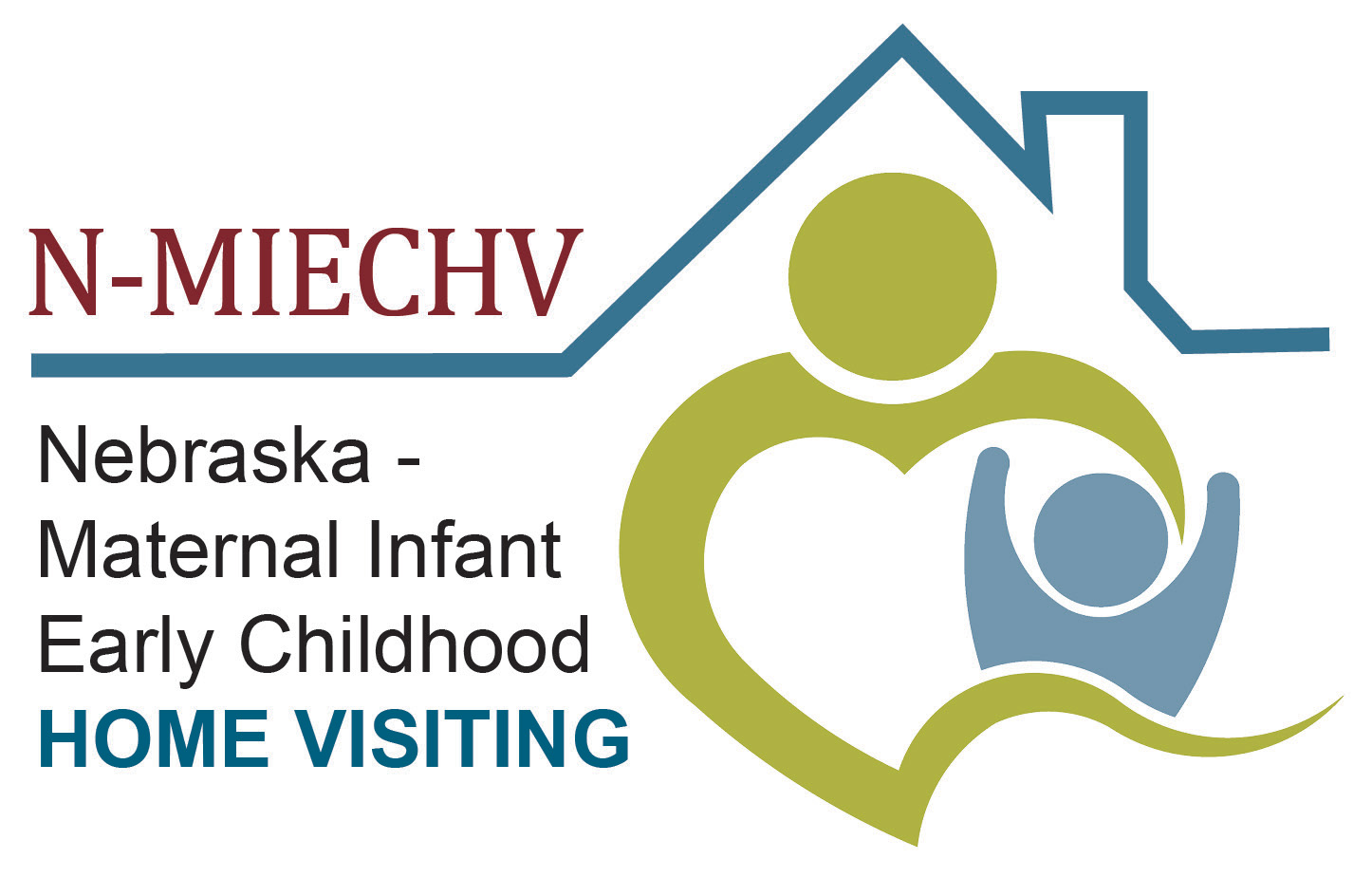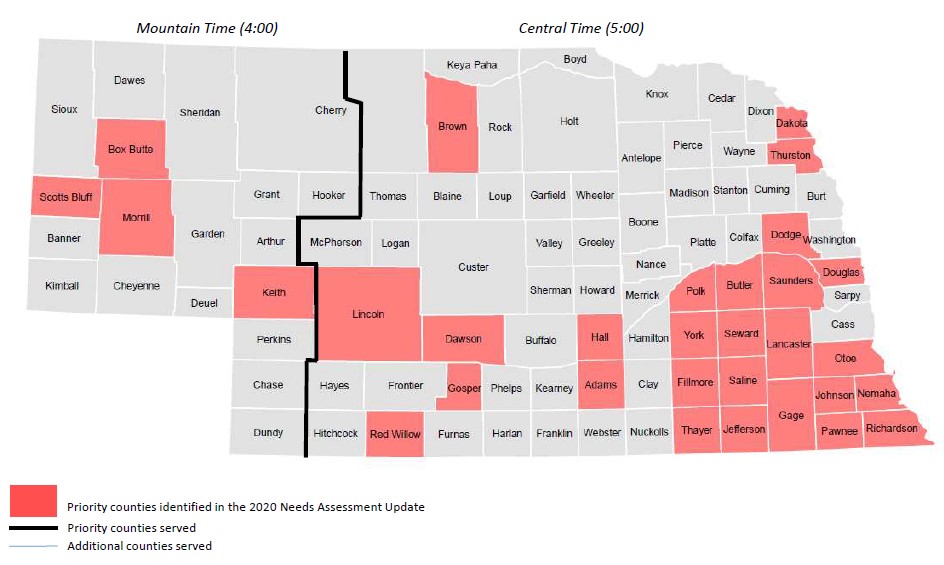No

Home Visitors are Partners in Resilience.
In 2010, the federal government, as part of the Affordable Care Act, reached out to each state and US territory interested in federal funds for evidence-based home visiting, to conduct a Needs Assessment evaluating six lifespan determinants of health:
Maternal and Newborn Health; Child Maltreatment, Child Injury and Emergency Room visits; School Readiness and Achievement; Domestic Violence; Family Economic Self-Sufficiency; and Coordination of Referrals and Resources. Nebraska identified “priority" counties with the potential for poor lifespan health outcomes based on the data. The Needs Assessment was updated in 2020.
Nebraska Priority Counties

N-MIECHV works to support and strengthen communities
In Nebraska, our evidence-based home visiting programs are community-driven. No one knows the families and what their needs are better than the people who live, work, worship, or go to school there. We bring local early childhood stakeholders together to discuss if a home visiting program might help meet the needs of families in the community, and if the answer is yes, we may have funding opportunities available.
Locally-Driven
When N-MIECHV invites communities to participate in the Community Planning Process, they engage in a strategic, locally-driven, collaborative process to determine the priorities for families in their area, identify systems gaps and decide whether or not an evidence-based home visiting program is the appropriate strategy to fulfill their needs.
Early Childhood stakeholders look at the
data for their own community, anecdotal as well as percentage rates for health outcomes, then look at what resources and supports they already have that are serving families
well. In doing so, the analysis may show systems gaps—or identified areas that are not currently being addressed by local programs. The community stakeholders and partners match up those gaps with the approved model research-proven outcomes and make decisions regarding whether a home visiting program is the right approach to address priorities.
As part of the early childhood community system, the stakeholders continue to serve the home visiting program in an invaluable manner; as referral sources both TO home visiting, and as a resource FOR families engaged in the home visiting program. They also may serve on the program advisory committee. Community support means successful home visiting programming and sustainability within the community.
N-MIECHV has created a guide for community stakeholders to engage in this conversation:
NMIECHV Asset Analysis and Readiness Guide.
Continued Support for the Community
If a local community decides to move forward with a Healthy Families America evidence-based home visiting program, N-MIECHV provides programmatic and data systems technical support, community-state liaisons and professional development opportunities to support the work, in addition to funding implementation projects as resources permit.
It is easier to build strong children than repair broken men.
Frederick Douglass
Contact